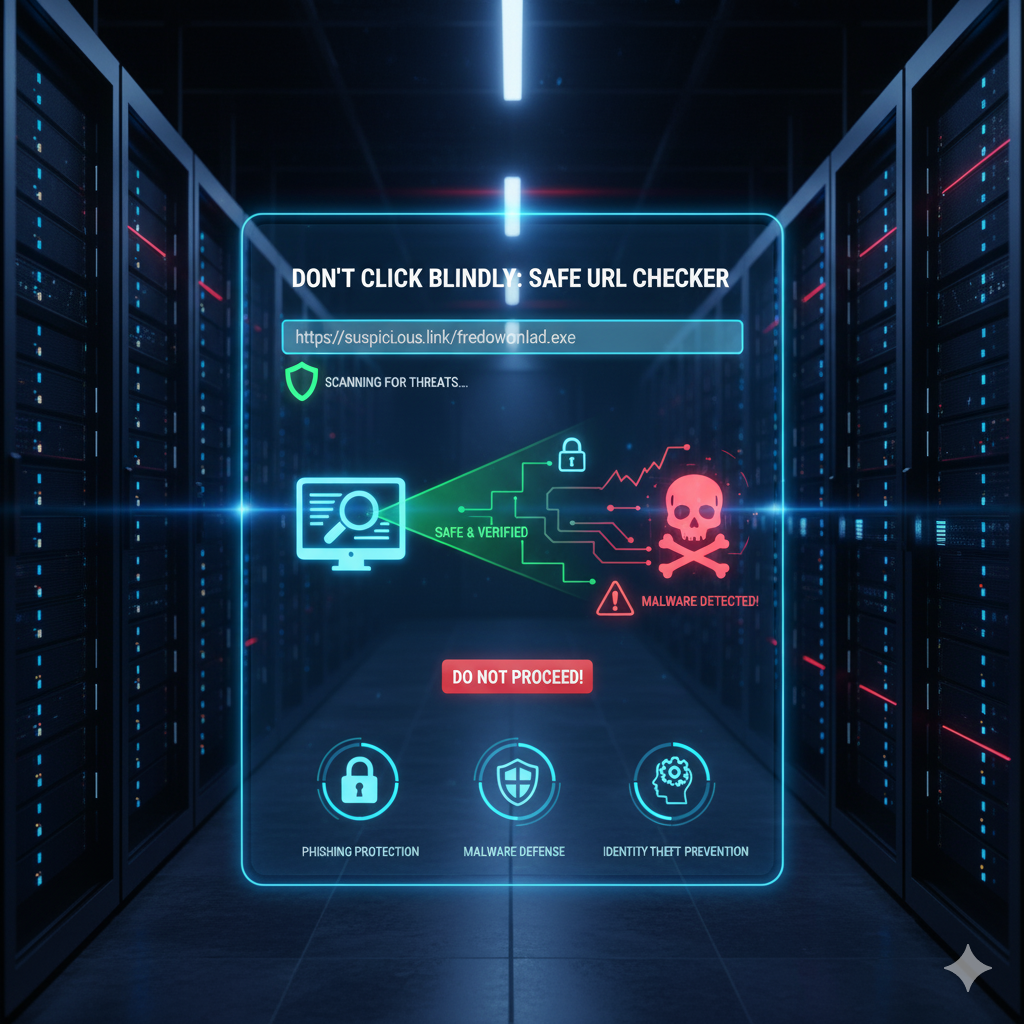
Safe URL checker
Created on 9 October, 2025 • Checker Tools • 85 views • 2 minutes read
What is a Safe URL Checker? A Safe URL Checker (or Malicious URL Checker) is an online tool that scans a given web address (URL) to detect potential security threats, such as malware, phishing attempts, spam, or other malicious content. Function: It lever
Don't Click Blindly: Why You Need a Safe URL CheckerThe Danger Lurking Behind Every Link
In our hyper-connected digital world, links are everywhere. From emails and social media posts to instant messages and online ads, we click countless URLs every day without a second thought. But behind that seemingly innocent string of characters could be a trap: a phishing scam designed to steal your passwords, a malware download waiting to infect your computer, or a spam site hoping to inundate you with unwanted content.
This is where a Safe URL Checker becomes your digital bodyguard.
What is a Safe URL Checker, and How Does It Work?
A Safe URL Checker is an online tool designed to analyze a web address and tell you if it's potentially dangerous. Think of it as a pre-flight security check for your clicks.
When you input a URL into the checker, it typically performs several checks:
Known Blacklists: It compares the URL against massive, constantly updated databases of websites known to host malware, engage in phishing, or distribute spam. Services like Google Safe Browsing and Microsoft SmartScreen maintain these lists.
Reputation Scoring: It might look at the domain's history, how long it's been registered, and its overall online reputation.
Content Analysis (in some cases): More advanced checkers might even briefly analyze the content or structure of the linked page for suspicious elements without fully visiting it.
Redirection Tracing: Malicious sites often use multiple redirects to hide their true destination. A checker can follow these redirects to reveal the final landing page.
Why You Can't Afford to Skip the Check:
Ignoring the safety of a URL can lead to serious consequences:
Phishing Attacks: You might be led to a fake login page that looks identical to your bank or email provider, tricking you into giving away your credentials.
Malware & Viruses: Clicking a malicious link can initiate a drive-by download, installing viruses, ransomware, or spyware onto your device without you even knowing.
Scams & Fraud: You could be directed to fraudulent shopping sites, fake prize giveaways, or tech support scams.
Identity Theft: Providing personal information on an unsafe site can lead to identity theft and financial losses.
Brand Damage (for businesses): Accidentally sharing or linking to an unsafe URL can harm your reputation and put your audience at risk.
When to Use a Safe URL Checker:
Make it a habit to use a URL checker in these situations:
Suspicious Emails/Messages: Any link in an email, text, or social media message that seems too good to be true, too urgent, or from an unknown sender.
Shortened URLs: Services like bit.ly or tinyurl.com obscure the real destination. Always check them before clicking.
Unfamiliar Websites: Before making a purchase or providing personal details on a site you don't recognize.
"Free" Offers/Downloads: Be extremely cautious with links promising free software, movies, or unbelievable deals.
Stay Safe, Stay Smart
A Safe URL Checker isn't a replacement for good online hygiene (like strong passwords and antivirus software), but it's an incredibly powerful addition to your cybersecurity toolkit. A quick copy-paste and a click can be the difference between a normal browsing session and a major digital headache. Don't click blindly; check before you leap!
Popular posts
-
DNS LookupChecker Tools • 143 views
-
Number to Word Converter ToolsConverter Tools • 135 views
-
Gravatar checkerChecker Tools • 118 views
-
SSL LookupChecker Tools • 107 views
-
Website hosting checkerChecker Tools • 107 views